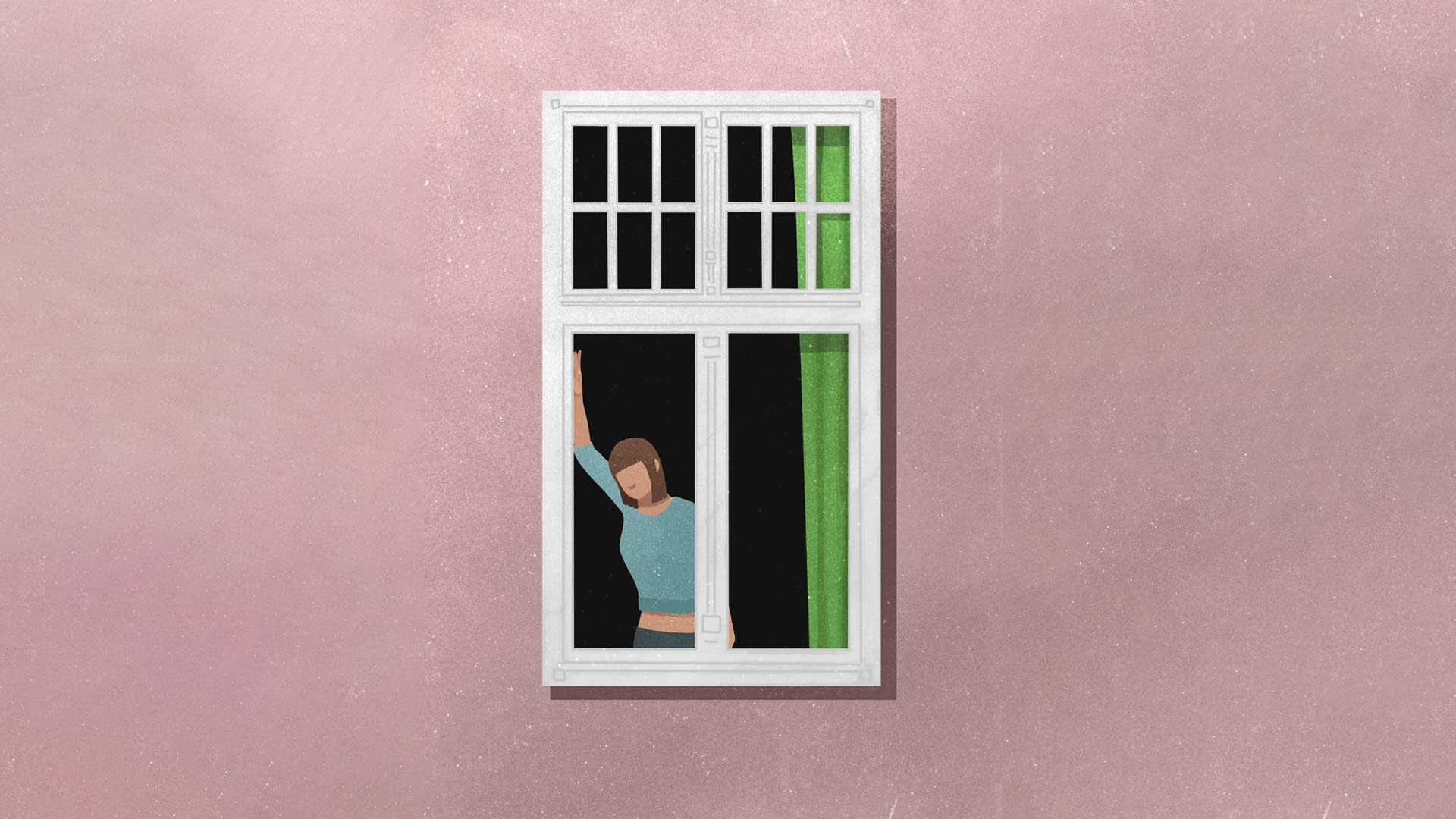What is ‘languishing’ and what can we do about it? The new term perfectly describes how we’re all feeling
Languishing is the new term used to describe that 'blah' feeling we've all been experiencing


We’ve all experienced that “blah’’ feeling. The one where you’re not quite sad but aren't particularly happy either. You're uninspired, unmotivated and procrastination seems to be prevalent—especially after months of working from home. You may have even found yourself Googling 'finding purpose in life'. If you can relate, you may be displaying symptoms of 'languishing.'
Described by The New York Times as the “neglected middle child” of mental health, languishing is defined as a sense of stagnation and emptiness. The term, which recently made headlines after the newspaper dubbed it the dominant feeling of 2021, perfectly sums up the overriding mood we've collectively felt following a long and exhausting global pandemic that has toyed with our emotions.
While it can be mistaken for burnout or borderline depression, it is neither because languishing isn't a complete lack of energy or hope. Instead, it's a combination of aimlessness and joylessness. It feels like a mundane reality without purpose, which can make a great impact on our mental health according to Lizzie Hasling, CMO & Co-founder of For Purpose Jobs.
Why are we 'languishing'?
“Purpose is a biggy. It's the thing that gets you out of bed in the morning and into the shower before 3 pm. But the pandemic took that away from a lot of people. Workloads took a hit because priorities changed, and projects were shelved due to furlough or redundancy, and with it, our sense of purpose. It's no surprise we're all feeling pretty blah,” says Hasling. “Work gives us a huge sense of purpose and identity; it's literally ‘what’ we do. And without it, we find ourselves in a state of limbo and left asking some pretty heavy questions like ‘what am I doing with my life?’ and mourning our future self whose personal and professional development was already mapped out.”
The COVID-19 outbreak, and subsequent standstill of the world that followed, led many of us to reevaluate our position in society and overall purpose in life which, as you'll know if you've ever had an existential crisis, is some pretty heavy stuff. “As a society, we collectively changed how we see people's contributions to the world, assigning more value to those who benefit the planet and the people on it. Things that mattered before now seem hollow and superficial.”
Similarly, Millennial Leadership Coach and founder of HUSTLE + hush Ltd, Tee Twyford, explains that the feeling could be caused by the logistics of working at home. “The lack of clear boundaries when we’ve been living all of our lives from within our homes for the past year has also meant that even if we have had a good day [at work], when it comes to the evening there’s been very little incentive to create a distinction from that and turn off for some hush and instead we find ourselves pushing ourselves to keep going.”
So, what exactly are the signs?

Symptoms of languishing
As explained by Vani Linda Bretherton, Ayurveda Master Trainer At Home, there are a few ways to identify a feeling of languishing. “Feeling ‘blah’ is a mild form of depression and is a common and weakening mood disorder. Particularly during these uncertain times,” she explains.
- Frequent sad, anxious or 'empty' mood
- Irritability and family conflict
- Loss of interest and pleasure in activities
- Loss of appetite or weight gain
- Feeling of guilt and worthlessness
- Low self-esteem
- Social withdrawal and agitation
- Sleeping too little (insomnia) or too much (hypersomnia)
- Difficulty in concentration and taking decisions
How can I prevent the feeling of languishing?
Anyone who is feeling like this is likely keen to snap out of it and while it's not as easy as flipping a switch (no mental health issues are), there are certain steps you can take to help you gradually ease out of it and start feeling like yourself again, says Bretherton. She suggests trying the eight following steps...
- Waking up early is recommended. Sleeping during the late morning causes the channels of communication to be clogged with impurities, leading to depressed moods, dullness of mind, and slow synchronization between heart and mind. Check out the best sleep aids to help you improve your sleep hygiene.
- Constipation can cause headaches, dullness, and fatigue, especially without the usual exercise and movement that many are used to, so it's good to drink plenty of water throughout the day (getting yourself one of the best reusable water bottles might inspire you to drink more throughout the day).
- Meditating for 20 minutes, twice a day, can help relieve emotional, physical, mental, and environmental stress. To get you started on your meditation journey—try one of these best meditation apps.
- Daily exercise is essential to combat depression because it increases the power of internal fire in the belly and helps improve processing power. Exercise also elevates mood and positive thoughts, so it's time to build the perfect workout schedule that you can stick to weekly.
- Eat your main meal at noon and a lighter meal in the evening. Choose foods that are natural and unprocessed and digested quickly by the body.
- Eat natural proteins such as soaked seeds and nuts with raisins and dates, panir (fresh cheese), and Ayurvedic buttermilk or lassi rather than yogurt, as these lighter drinks are better for lightening emotions.
- By giving yourself a daily oil massage, you get benefits such as an increase in circulation, allowing toxins to be cleared from the tissues. It also invigorates the body, calms the mind, and soothes emotions.
- Getting enough rest is essential for emotional health, and falling asleep during the Kapha time of night generates a deep, restful sleep that truly refreshes mind and body. Falling asleep after 10 pm produces a more restless sleep, and you will be more likely to wake up in the night with emotional distress. So try to go to bed before 10 pm.
Sagal is a journalist, specialising in lifestyle, pop culture, fashion and beauty. She has written for a number of publications including Vogue, Glamour, Stylist, Evening Standard, Bustle, You Magazine, Dazed and Wonderland to name a few.
